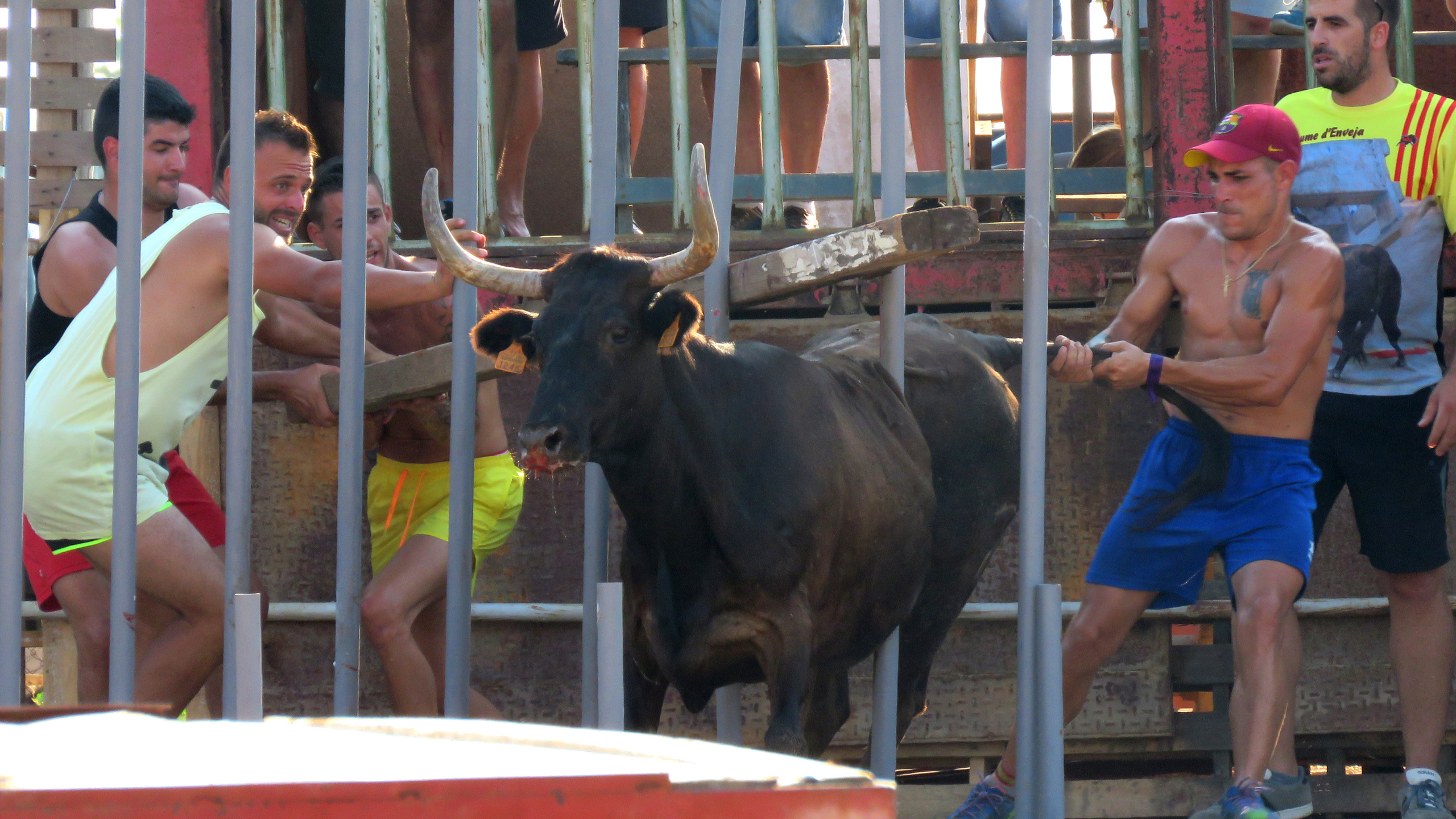Correbous

Photo: Masdenverge Bull Run, 2016. Provided by: Aïda Gascón
From the Center for Animal Ethics at UPF, we want to express our support for the Prou Correbous Platform and urge the political class to safeguard the interests of non-human animals and the construction of a society without violence, prioritizing this over partisan and electoral interests.
This section has been compiled thanks to the work carried out during her stay at UPF-CAE by Paula Estrada.
Correbous, what are they?
Correbous or bous are traditional popular bull-related festivals in which bulls are released, led, taunted, exhibited, or run without causing their death. In Catalonia, although several towns still include correbous in their popular festivities, the vast majority are concentrated in the Terres de l'Ebre, the number of municipalities barely exceeds thirty, representing only 3% of all Catalan municipalities. The physical and psychological suffering of the animals involved in correbous is scientifically supported and is evident at a glance for any observer. Some modalities are particularly violent for the animals, such as bous capllaçats or bous embolats, but all modalities without exception (including bous on the street or in the plaza) involve suffering for the animals (Avatma, 2015, 2016a, 2016b, 2016c, 2017).
What is their current situation?
Correbous in Catalonia are legal, but their situation is subject to significant controversy regarding ethical and animal welfare issues. The vast majority of Catalan society does not find it justified to mistreat and cause suffering to animals for entertainment and festivities, nor do they believe that allocating funds for this purpose is justified.
It is in the context of this moral contradiction that various animal advocacy entities, such as the ProuCorrebous Platform, emerge. This platform has been active in promoting campaigns and actions to achieve the prohibition of correbous in Catalonia. The platform seeks changes in legislation to ensure the protection of animals in bull-related festivities and to promote artistic and popular alternatives that do not involve the suffering of these animals.
- Web de la Plataforma Prou Correbous
- Comunicado del CAE en apoyo a la Plataforma Prou Correbous
- Municipios donde se celebran fiestas tradicionales con bueyes
- Informe sobre el incumplimiento en el transporte de bovinos de lidia
- Sufrimiento del toro en los festejos populares
- Informe técnico veterinario sobre el sufrimiento de los “toros de fuego” o “toros embolados”
- Informe técnico veterinario sobre los espectáculos taurinos con vacas y vaquillas
- Sufrimiento del toro en Festejos Populares – Toro enmaromado
Codina Segovia, J., 2018. Pan y toros. Madrid: Plaza y Valdés Editores.
Felices, R., 2010. Catalunya taurina: Una historia de la tauromaquia catalana de la
Edad Media a nuestros días. Barcelona: Edicions Bellaterra.
González, A. 1996. Bous, toros i braus. Tarragona: Edicions El Mèdol.
Mosterín, J., 2010. A favor de los toros. Pamplona: Editorial Laetoli.
Padullés Plata, J., 2011. Bous de mort. Tarragona: Arola.
Pitt-Rivers, J. 2002. El sacrificio del toro. Revista de Estudios Taurinos, 14-15, 77-118.
